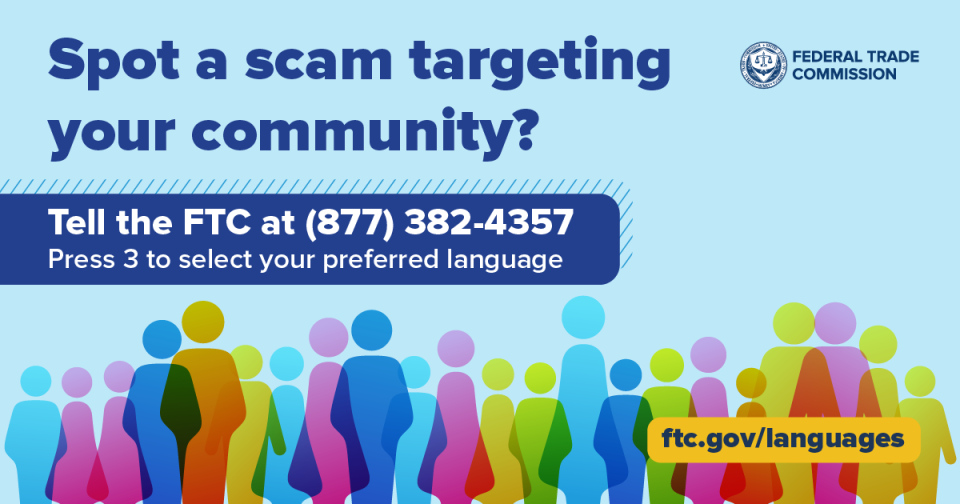Scammers speak your language. That's why the FTC now takes reports in multiple languages. To report in Mandarin, Tagalog, Vietnamese, French, Arabic, Korean, Russian, Portuguese, Polish, and many other languages, call the FTC at (877) 382-4357. Press 3 to speak to an interpreter. To report identity theft, call (877) 438-4338 and choose the option for your preferred language. Lines are open between 9am-5pm Eastern.
Prefer to report online? In English, visit ReportFraud.ftc.gov or IdentityTheft.gov — or in Spanish, go to ReporteFraude.ftc.gov or RobodeIdentidad.gov. You’ll get immediate guidance on next steps.
But wait, there’s more. Now you’ll find advice in a dozen languages at ftc.gov/languages. There you’ll learn how to avoid a scam, what to do if you paid a scammer, and how to avoid scams targeting your small business. There’s even a fraud handbook for recent arrivals to the United States.
Prefer getting your information in print? At ftc.gov/bulkorder, you can order free publications in multiple languages. Now, order How To Avoid a Scam and Scams and Your Small Business in Simplified Chinese, Korean, and Vietnamese. And, as always, check out ftc.gov/ordenar to order in Spanish.
Whether you get FTC materials online or in print, we hope you’ll share them with family and friends in your communities. By sharing what you know about scams and reporting what you see, you can help stop scams and protect your community.


How to report phishing scams recieved through text
Recently I was scammed for $1800. From a man identifying himself as being from Facebook